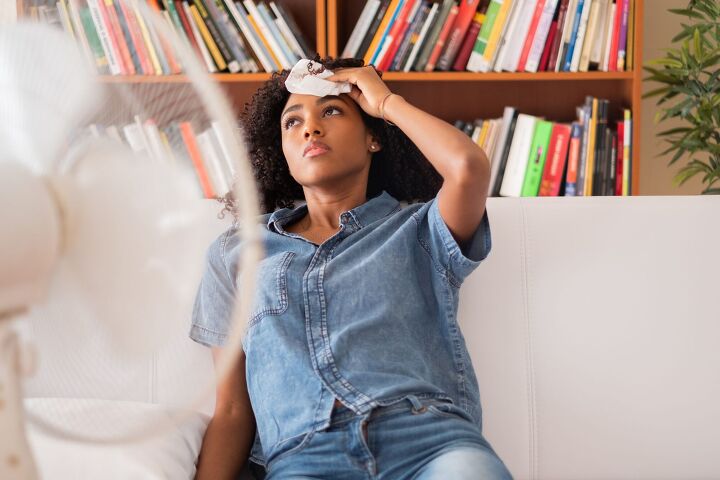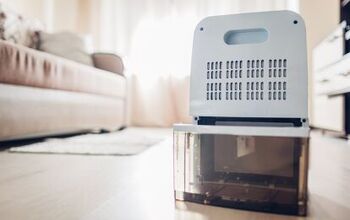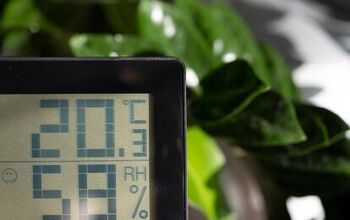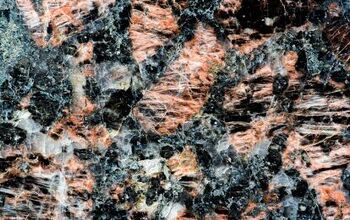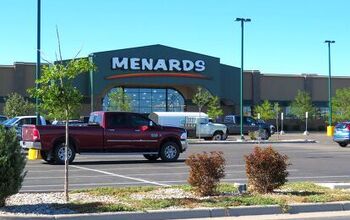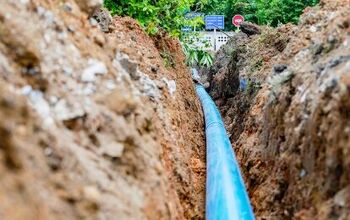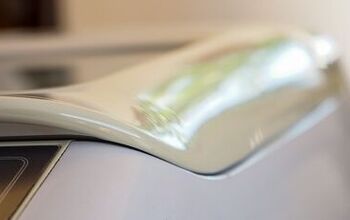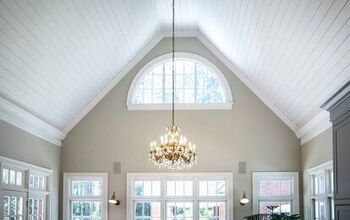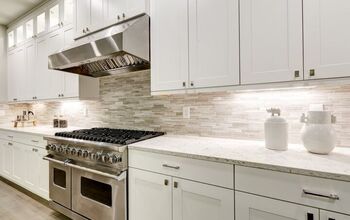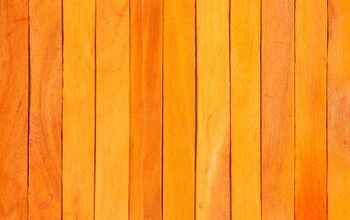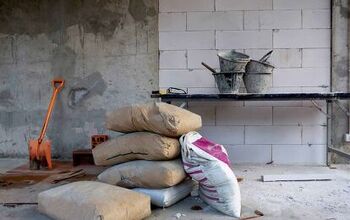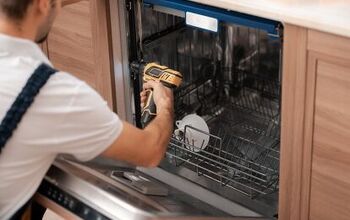Why Is My House So Humid With The AC On?

You rely on your air conditioner to keep your home cool and comfortable when it’s hot and steamy outside. But what happens when your house is humid with the AC on, leading to excess moisture in the air? Isn’t your AC supposed to take care of that?
High outdoor humidity levels can make your home humid. You might be using the wrong fan settings or dealing with dirty condenser coils. Frozen evaporator coils also lead to a humid house when the AC is running. Keep your AC fan on auto, change the filter regularly, and keep up with routine maintenance to tackle humidity issues.
You can troubleshoot a few possibilities if you’re always dealing with a humid house, even when the AC is on. Some are simple fixes, while others require the help of a professional HVAC specialist.
Five Reasons Your House Is Humid When Your AC Is On
Are you tired of excess humidity in your home? You might find yourself frustrated that you can’t escape all the unpleasantness of the outside weather. But it doesn’t necessarily mean that something’s wrong with your AC.
Before you fear the worst, check out these reasons why your house is humid with the AC on.
1. Extremely High Humidity Outside
If it’s ridiculously humid outside, it’s harder to control the humidity levels in your home. It’s similar to how it’s harder for your AC to reach a particular temperature when it’s sweltering outside.
Your air conditioner only cools to a certain point. If it’s over 95 or 100 degrees outside, it’s normal for your AC only to reach about 78 degrees. If you try to crank it down lower to make things even colder, you’ll only force your AC unit to work overtime.
Similar to this concept, when outside humidity is extremely high, it’s harder for your AC to control the indoor levels. Check your unit as the outside humidity levels drop. Is it maintaining the indoor moisture levels better now? If so, you can confidently blame the extreme outdoor conditions for the temporary humidity hike inside your home.
2. A Dirty AC Filter
AC maintenance 101 tells you to change your air conditioner’s filter regularly. Depending on the type of filter you use, this could mean monthly (the most common recommendation), every three months, etc. Regardless of the filter type, keeping up with the schedule is critical to the overall functioning of your unit.
A dirty filter means air can’t travel through it freely. It traps moisture, letting moisture accumulate in your ducts and disperse through your home. This problem not only leads to excess humidity in your house, but also contributes to potential mold and mildew growth.
3. Using The Fan Improperly
Your AC has a blower fan that provides consistent air circulation throughout your HVAC system. The fan doesn’t provide cooling properties, so if your AC is off, the air coming out will feel warmer.
When your AC pulls moisture from the air that it cools, the moisture collects on the condenser coils. If you keep the fan on constantly, it can blow this moisture into your home.
Instead, set the fan to AUTO so the unit shuts off between cooling cycles. When it turns off, the condensation has time to drain instead of ending up adding to your home’s humidity.
Also, setting your fan to low will give it more time to remove moisture from the air. The higher setting might help cool down your house faster, but it doesn’t remove humidity as effectively.
4. Dirty Condenser Coils
If the condenser coils in your outside AC unit become dirty, they won’t work as well. The coils are essential to transferring heat from inside your home to the outdoors using refrigerant.
As grime, dust, and dirt accumulate on the coils, it becomes harder for the refrigerant to do its job. The gunk blocks the heat, causing the AC to work less efficiently, which means it can’t dehumidify the air as well. You might notice other issues, too, like water blowing out your AC vents or your AC shutting down completely.
A primary part of routine AC maintenance is cleaning the condenser coils. You should have a professional HVAC technician service your unit at least once a year. They will clean the coils and make sure everything is working properly.
5. Frozen Evaporator Coils
When it gets super hot outside, it’s understandable you want to crank down the AC. But during the heat of summer, it’s not uncommon to end up with frozen evaporator coils.
The coil uses refrigerant to absorb the heat from inside your home. But things like a dirty filter, blocked condenser unit, or low refrigerant can lead to a frozen evaporator coil. When the evaporator coil freezes, it no longer works properly, unable to remove any moisture (or very little) from the indoor air.
If you suspect a frozen coil, turn off your unit. Check the filter and see if changing it helps. Allow the coil time to thaw before turning on the unit. If it’s a clog, leak, or other issue, call a professional to assess the problem.
How Do I Get Rid Of Humidity In My House With An Air Conditioner?
Your AC is supposed to keep your house cool and control moisture in your home. If it isn’t doing either thing properly, a few simple tweaks in your routine could get things back on track.
- Change the AC filter regularly
- Set the fan to AUTO so it only runs when the AC is on
- Run the fan on the lower setting
- Schedule routine AC maintenance at least once a year by a professional HVAC technician
- Clean the coils according to your AC manufacturer’s instructions (the best way is to stay on top of regular maintenance service as this is part of the process)
- Maintain proper refrigerant levels (failing to do so can lead to more serious problems with your AC unit. Refrigerant checks are also part of a routine AC service.)
- Ask your HVAC specialist about a thermal expansion valve (it adjusts the refrigerant based on the temperature, increasing the evaporator coil’s ability to lower humidity in variable conditions)
In addition to your AC unit, here are a few other ways to help reduce humidity levels inside your house.
1. Consider Installing A Whole-House Dehumidifier
If you live in an area that deals with frequent humidity issues, your AC might need a little extra help. A whole-house humidifier can help lower humidity levels in your home and ease the strain on your air conditioner. When your AC doesn’t have to work so hard to remove all of the excess moisture, it will function better and last longer.
If you only have issues with humidity in specific areas, a smaller dehumidifier might be all you need. They come in all sorts of sizes and shapes to accommodate your situation.
2. Check Your Home’s Ventilation
Ensure that you have proper ventilation throughout your home. It’s especially important to have ventilation in typically wet areas, like bathrooms and kitchens. An HVAC specialist can assess your current situation and determine if you need to add ventilation or replace ducts, etc.
3. Change Your Habits
When it tends to be more humid, reduce the amount of moisture you create inside. For example, you might take shorter showers, wash dishes when it’s cooler outside, etc. By better controlling moisture sources in your home, you can help limit the amount of humidity inside your house.
Hello, Humidity! What’s Wrong With My AC?
Having extra humidity inside your home can feel downright gross, especially when you’re expecting cool, comfortable air. In many cases, it might be a dirty filter or dirty or frozen coils. Keeping up with routine maintenance and changing your air filter on time is vital to the proper functioning of your AC.
If it’s extremely humid outside, you might be unable to do much with your indoor humidity levels. But changing your habits to reduce moisture in your home and improving your ventilation can help. If you find that humidity is a constant issue, considering a dehumidifier could be worth it.
Related Guides:

Stacy Randall is a wife, mother, and freelance writer from NOLA that has always had a love for DIY projects, home organization, and making spaces beautiful. Together with her husband, she has been spending the last several years lovingly renovating her grandparent's former home, making it their own and learning a lot about life along the way.
More by Stacy Randall



